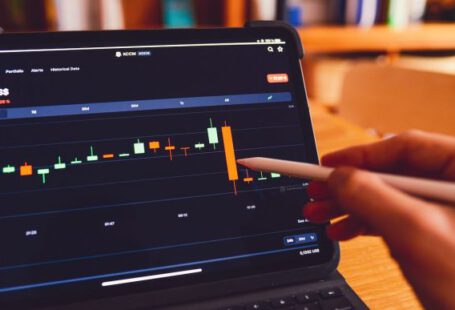Political uncertainty is causing significant upheaval in European markets, as investors grapple with the potential impact of shifting political landscapes across the continent. With key elections and ongoing Brexit negotiations, the future of Europe’s economic stability hangs in the balance. This article explores the major factors contributing to the uncertainty and the potential consequences for European markets.
Elections: A Game of Political Roulette
Several European countries are facing crucial elections that could have far-reaching implications for the region. From Germany to France, the rise of populist and nationalist movements has injected a sense of unpredictability into the political arena. The recent victory of Emmanuel Macron in France’s presidential election brought temporary relief, but the underlying tensions remain. The gains made by far-right parties across the continent have raised concerns about protectionist policies, the future of the European Union, and the overall stability of the European economy.
Brexit: The Elephant in the Room
The decision of the United Kingdom to leave the European Union has cast a shadow of uncertainty over European markets. The negotiations between the UK and the EU have been marked by contentious debates and conflicting interests. The lack of clarity regarding the terms of the divorce and the future relationship between the two entities has left investors on edge. The potential disruption to trade, investment, and the movement of labor across borders is a cause for concern, as businesses and financial institutions grapple with the implications of a post-Brexit world.
Market Volatility: Riding the Rollercoaster
Political uncertainty has translated into market volatility, with European stock markets experiencing significant fluctuations. Investors are seeking safe havens and shifting their portfolios to mitigate risk. The uncertainty surrounding the outcome of elections and the Brexit negotiations has created an atmosphere of caution, with investors hesitant to make long-term commitments. This volatility can have cascading effects on the real economy, impacting consumer confidence, business investment, and overall economic growth.
Currency Fluctuations: The Euro’s Rollercoaster Ride
The euro, the common currency of the Eurozone, has been particularly vulnerable to political uncertainty. Currency fluctuations have become a common occurrence as investors react to political developments. The euro’s value has fluctuated in response to election results and Brexit-related news. This volatility has implications for trade, as a weaker euro can boost exports but also increase import costs. Moreover, it affects countries with high levels of debt denominated in euros, as their borrowing costs can rise in a climate of uncertainty.
Investor Sentiment: The Power of Perception
Political uncertainty not only affects the markets directly but also shapes investor sentiment. Fear and uncertainty can drive investors away from risky assets, leading to a flight to safety. This can result in a decrease in investment and a slowdown in economic activity. On the other hand, political stability and positive developments can boost confidence and attract investment. The perception of political risk plays a crucial role in determining market dynamics and the overall health of the European economy.
Conclusion: Navigating Choppy Waters
European markets are currently navigating choppy waters, as political uncertainty continues to cast a shadow over the region’s economic prospects. The outcome of key elections and the progress of Brexit negotiations will shape the future trajectory of European markets. However, uncertainty can also present opportunities. Investors who are able to navigate the volatility and identify undervalued assets may find attractive investment opportunities amidst the chaos. Nonetheless, until political uncertainties are resolved, European markets are likely to remain on edge, with investors closely monitoring developments and adjusting their strategies accordingly.





